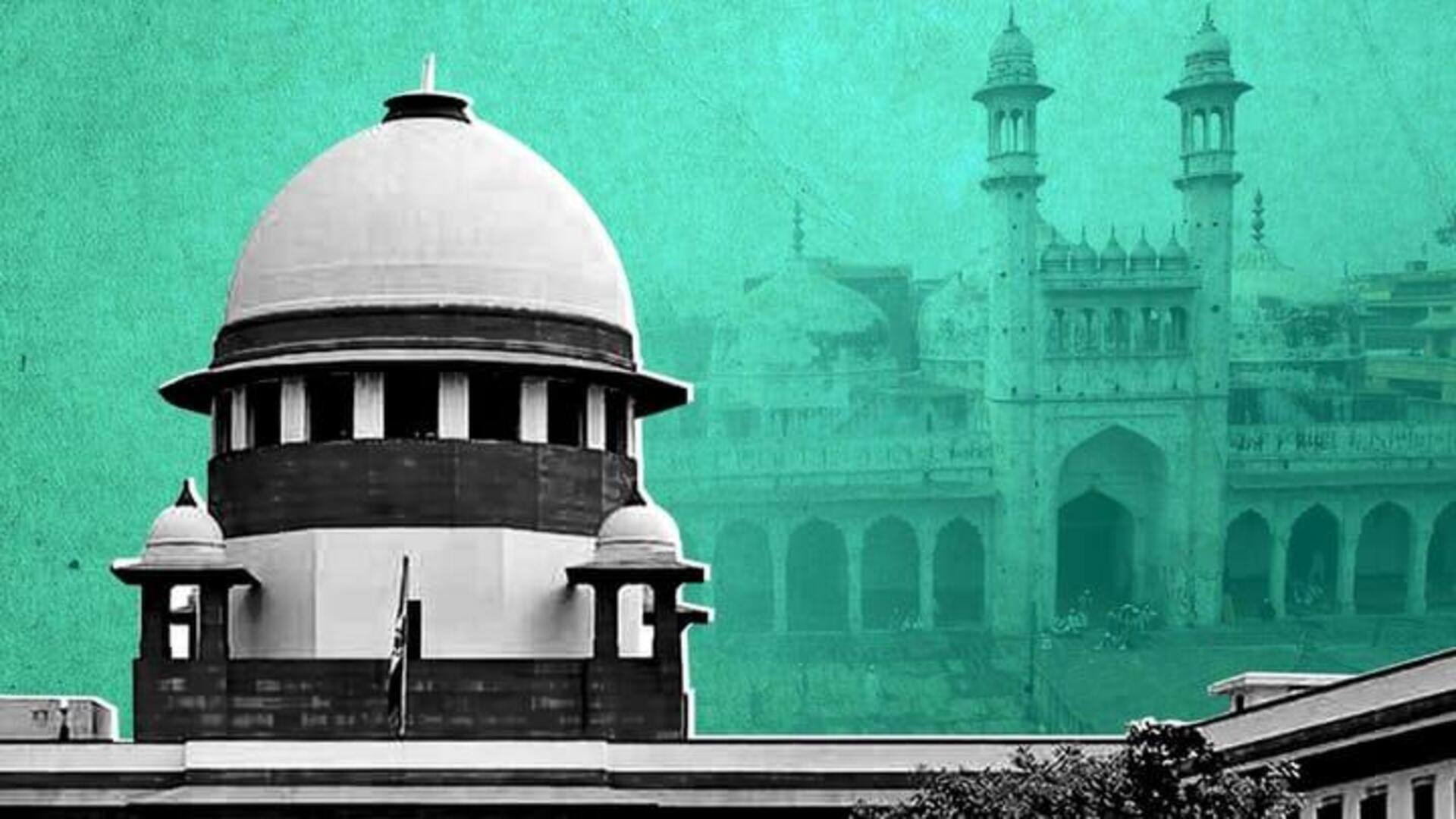
Gyanvapi Mosque survey to continue in 'non-invasive method': SC
What's the story
The Supreme Court on Friday said the survey of Gyanvapi Mosque in Uttar Pradesh's Varanasi should be done in a "non-invasive method," reported NDTV.
The court's statement came during the hearing of the mosque committee's plea challenging the Allahabad High Court's order allowing the survey.
On Friday morning, a team of the Archaeological Survey of India (ASI) started a scientific survey at the complex.
Excavation
No excavation will be done at the site
The court allowed the survey after the ASI stated that no excavation will be done at the site and no damage will be caused to the structure.
During a videographic survey of the complex last year, the Hindu plaintiffs claimed that a "shivling" was found close to the wazukhana.
The Muslim plaintiffs disputed the claim, insisting that the item was part of a "fountain."
Details
Submit report in 4 weeks: SC to ASI
Reportedly, the apex court has given four weeks to the ASI team to submit its report to a Varanasi court.
Meanwhile, the Anjuman Intezamia Masjid Committee said the survey will go into history and "reopen wounds of the past."
Notably, the survey is being carried out to determine if the 17th-century mosque has been built over the pre-existing structure of a Hindu temple.
Survey
42 members part of survey
A 42-member team is participating in the survey, including 30 members of the ASI, the Hindu plaintiffs, and their counsels.
The ASI team has been divided into four parts to conduct the survey. The process started with dusting, followed by photo documentation, and non-destructive Ground-Penetrating Radar (GPR).
Four-layered security, including paramilitary personnel, were deployed outside the mosque in view of the survey.
Conflict
BJP fanned Gyanvapi Mosque issue
The Gyanvapi Mosque is one of several mosques that Hindu right-wing groups claim were built by Muslim invaders by destroying Hindu temples.
The ruling Bharatiya Janata Party (BJP) fanned the issue, after its formation, in the 1980s and 1990s, touting it as a reclamation project for Hindus.
However, several renowned Hindu priests have rejected the Hindu litigants' claims, accusing them of stoking communal tensions.